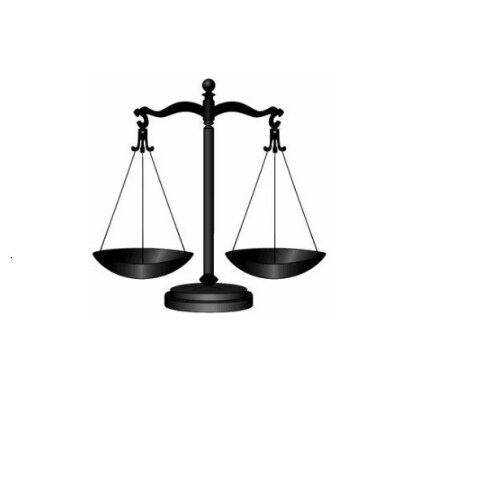Best Native People Lawyers in Abuja
Share your needs with us, get contacted by law firms.
Free. Takes 2 min.
List of the best lawyers in Abuja, Nigeria
About Native People Law in Abuja, Nigeria
Abuja, the federal capital of Nigeria, is home to a multitude of ethnic communities collectively referred to as the Native People. The law affecting these communities spans across personal law, property law, and community law. Personal laws include things such as marriage, divorce, and inheritance. Property laws may cover disputes over land and natural resources. Community laws could involve chieftaincy tussles or inter-community disagreements. Statutory and customary laws govern these, with the latter being a critical part of Native People law and often the first resort in dispute resolution.
Why You May Need a Lawyer
Seeking legal advice or representation is not unusual when it comes to disputes or issues concerning the Native People of Abuja. These situations may include disputes over land ownership, marriage dissolution, inheritance claims, contractual agreements, or conflicts arising from customary practices. Navigating these complexities often requires the expertise of a knowledgeable lawyer who is proficient in both statutory and customary law.
Local Laws Overview
The legal rules concerning the Native People in Abuja reflect a blend of Nigerian statutory law and customary practices. Nigerian land law, for instance, is relevant in cases of land disputes among the native communities. The Constitution of Nigeria also acknowledges customary law as long as it does not contradict the constitution itself and is not repugnant to natural justice. Thus, customary law plays a significant role in shaping the legal realities of the Native People. However, the application of customary laws-guided by traditional norms and beliefs-varies across different ethnic communities and may sometimes collide with statutory laws.
Frequently Asked Questions
1. Does customary law overrule statutory law?
No, customary law does not overrule statutory law. If a clash occurs, statutory law takes precedence.
2. Can non-natives buy land in Abuja?
Yes, under the Land Use Act of Nigeria, non-natives can acquire land in Abuja, provided they follow due process.
3. How can customary laws be applied in modern courts?
For a customary law to be applied in court, it has to be proven to the satisfaction of the court to exist and to be recognized as law by the native community in question.
4. How are inheritance issues settled?
Inheritance matters are typically settled according to the decedent's personal law, which could either be statutory or customary depending on the individual's orientation, religion, and lifestyle.
5. Can a native tradition be taken to court?
Yes, any dispute arising from native traditions can be challenged in court if it is believed to infringe upon an individual's rights.
6. Can customary marriage be recognized by the court?
Yes, customary marriages are recognized under Nigerian law and are as legally binding as statutory marriages.
7. Is female circumcision allowed under Nigerian law?
No, female circumcision or Female Genital Mutilation is a criminal act under the Violence Against Persons (Prohibition) Act of 2015.
8. Can a community impose its customs and traditions on all its inhabitants?
The right to practice customary laws or be bound by them does not override an individual's constitutional rights.
9. How can one opt-out of being subject to customary laws?
While this depends on the specifics, often an individual must demonstrate consistent adherence to another system of law, for instance, the statutory law, that overtly contradicts customary law in respect of the matter in question.
10. Can an outsider become a leader in a Native community?
Leadership in Native communities is often determined by customs and traditions, and usually, only individuals from that community can assume leadership roles.
Additional Resources
For more detailed information, you may visit the Nigerian Law School, the National Library of Nigeria, or the National Institute for Cultural Orientation. They provide myriad resources about Nigeria's legal system and cultural heritage. The Nigerian Bar Association (NBA) can also help you find a reliable attorney who specializes in Native People Law.
Next Steps
If you need legal assistance, the next step is to find a reputable lawyer experienced in Nigerian law, particularly in customary law. They can provide accurate advice based on your specific circumstances. Remember that it is crucial to give your attorney all the necessary information, ensuring they understand your situation in order to provide optimal representation or guidance.
Lawzana helps you find the best lawyers and law firms in Abuja through a curated and pre-screened list of qualified legal professionals. Our platform offers rankings and detailed profiles of attorneys and law firms, allowing you to compare based on practice areas, including Native People, experience, and client feedback.
Each profile includes a description of the firm's areas of practice, client reviews, team members and partners, year of establishment, spoken languages, office locations, contact information, social media presence, and any published articles or resources. Most firms on our platform speak English and are experienced in both local and international legal matters.
Get a quote from top-rated law firms in Abuja, Nigeria — quickly, securely, and without unnecessary hassle.
Disclaimer:
The information provided on this page is for general informational purposes only and does not constitute legal advice. While we strive to ensure the accuracy and relevance of the content, legal information may change over time, and interpretations of the law can vary. You should always consult with a qualified legal professional for advice specific to your situation.
We disclaim all liability for actions taken or not taken based on the content of this page. If you believe any information is incorrect or outdated, please contact us, and we will review and update it where appropriate.











